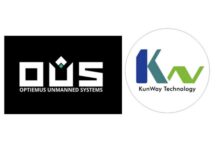As we approach 2025, the technological landscape is witnessing a dramatic shift, with Artificial Intelligence (AI), Machine Learning (ML), and other groundbreaking innovations at the core of this transformation. Enterprises across the globe are incorporating these technologies into their strategies, fundamentally changing the way they operate, deliver services, and interact with customers. The integration of AI and ML into business processes is not just about improving efficiency but also about opening up entirely new possibilities for growth, innovation, and competitive advantage.

“Technologies like artificial intelligence (AI), quantum computing, and the Internet of Things (IoT) will drastically change businesses by 2025, spurring innovation and improving operational effectiveness. The future of AI in India is agentic AI, which gives companies the ability to improve decision-making and automate difficult jobs, increasing their competitiveness. Data bias will be addressed and safer deployments will be ensured by improvements in algorithm transparency and strong security measures, which will help overcome AI’s limits. Increased usage across a range of industries is anticipated to drive the exponential growth of the AI market in India. Additionally, by providing individualized interactions and automating operations, Generative AI and Small Language Models (SLMs) will greatly improve client experiences while increasing productivity and happiness. When taken as a whole, these developments will help businesses grow sustainably, stay competitive, and move quickly across the rapidly changing digital landscape.” Saravanan T., Senior Director, Engineering Product Management, Ascendion.

“AI Agents, which use self-determination to achieve assigned tasks, are expected to become a significant force in business in India by 2025. While current AI Agents are often embedded in broader automation processes, their role is set to evolve with more standalone agents being developed and deployed. This will mark a shift from traditional software systems, which execute processes without any form of probabilistic decision-making, toward more intelligent systems capable of handling dynamic and complex tasks. As businesses increasingly adopt AI, they will continue to mature in their use, driving demand for AI services as they witness the benefits of early AI initiatives. However, this growth is likely to follow a typical hype curve, with both successes and failures. Enterprises must focus on AI applications that deliver real business value rather than chasing fleeting trends.
In terms of overcoming limitations, while AI may not fully resolve challenges such as data bias, security issues, and ethical concerns by 2025, significant progress is expected. We can anticipate better integration of guardrails to mitigate AI bias and a greater industry focus on Responsible AI practices. As the regulatory landscape becomes clearer, AI systems will be better equipped to handle these concerns, making them more reliable and secure.
Generative AI and Self-Learning Machines (SLMs) are expected to revolutionize customer experiences and automated workflows by 2025. The growing use of Generative AI in business workflows, seen increasingly in 2024, will continue to expand into more complex business processes. This will lead to smarter, hyper-personalized chatbots and automation systems designed to better understand and respond to customer needs. Businesses will increasingly automate more intricate workflows with Generative AI, improving efficiency and personalization in customer interactions.” Heather Dawe, Chief Data Scientist & Head of Responsible AI, UST UK.

“As we look towards 2025, emerging technologies are set to redefine how enterprises operate, with advancements in AI, 5G, and AR/VR playing pivotal roles. AI will drive smarter decision-making, enabling personalized customer experiences and improving operational efficiency. The fusion of 5G connectivity and AI will give rise to AI-driven networks, accelerating the growth of IoT and enhancing real-time interactions with cyber-physical systems. AR and VR will transform industries like design, healthcare, and training, creating new opportunities for innovation. Among these, Agentic AI is poised to be a key disruptor, moving beyond traditional Robotic Process Automation (RPA) to autonomously handle complex tasks, thus enhancing operational efficiency without constant human oversight. By integrating advanced large language models (LLMs) and other machine learning models, Agentic AI will optimize workflows, create hyper-personalized customer experiences, and streamline business processes. This shift will positively impact industries such as healthcare, manufacturing, customer support, logistics, and operations.
To overcome the current limitations of AI, including data bias and security concerns, 2025 will witness the rise of synthetic data generation, providing diverse datasets to improve AI model accuracy and mitigate bias. Alongside this, robust data governance and regulatory frameworks will ensure responsible AI use, while quantum-safe algorithms will address emerging security challenges in quantum technologies. As the AI market in India grows at a projected rate of 25% to 35% CAGR, industries like marketing, content generation, and sales will see significant returns on investment, boosting productivity and positioning India as a global AI leader.
Generative AI and Specialized Language Models (SLMs) will also revolutionize customer experiences and automated workflows by 2025. SLMs, designed for specific domains and leveraging local data, will create tailored models that provide accurate insights while reducing computational resource requirements. This will lead to greener, more sustainable AI solutions and offer greater control over data security and intellectual property. SLMs will enable real-time customer interactions, automate routine tasks, and streamline operations, ultimately driving efficiency, innovation, and exceptional value-added services for businesses across various sectors.” Biswajit Biswas, Chief Data Scientist, Tata Elxsi.

“As Artificial Intelligence (AI) continues to reshape industries, a pragmatic approach to AI adoption is critical. Success is ensured by having a strong foundation, which is why a focus on AI fundamentals is paramount, rather than getting caught up in the hype. High-quality data remains at the core of actionable insights, and the adage ‘garbage in, garbage out’ has never been more relevant. Looking ahead to 2025, the focus will shift beyond generative AI (GenAI) to scalable, adaptable solutions that prioritise data quality, data governance, and practical use cases. Businesses that build robust data infrastructures will be better positioned to harness AI’s full potential, both responsibly and effectively. Trust and data quality will define the success of AI in 2025. Solutions that enable intuitive data interaction – like querying datasets in natural language – will gain traction as they address the growing demand for usability and trustworthiness. The real value of AI in 2025 will come from its ability to help businesses operationalise their data responsibly, balancing innovation with control, security, and compliance. The rise of agentic AI – systems that autonomously assess and act with minimal human input – marks a pivotal shift for businesses. To fully harness its potential, vendors must embrace open, agnostic platforms that integrate seamlessly across ecosystems, avoiding the constraints of proprietary systems that stifle innovation. IDC emphasises that AI success lies in unified platforms that scale solutions across organisations, maximising investments and ensuring economies of scale. AI success comes from systems that integrate seamlessly across cloud platforms and ensure continuous data flow. Closed ecosystems limit innovation and lock companies into outdated tech. Agnostic platforms that integrate with environments like AWS, Snowflake, and Databricks prevent fragmentation and enable AI to function as a cohesive, adaptive unit.” Charlie Farah, Field Chief Technology Officer for Analytics and AI at Qlik.

“AI Security will dictate innovation.AI is transformative, and its evolution is unfolding rapidly across public and private clouds. As adversaries increasingly target AI services and large language models (LLMs) deployed in these environments, protecting the integrity and performance of AI systems is more critical than ever. The data driving these models – and the applications they power – must be safeguarded against sophisticated threats. To secure AI innovation in the cloud, security teams will need specialized technology and services that monitor AI services and LLMs, detect misconfigurations, and identify and address vulnerabilities, unified with protection across the entire cloud estate: from infrastructure and applications to data.
Identity will open the door to more cross-domain attacks.Identity-based attacks continue to rise – 75% of attacks to gain initial access are now malware-free. As adversaries become more skilled at exploiting stolen credentials, they will increasingly target interconnected domains within a victim’s architecture – identity, cloud, endpoint, data and AI models. These attacks leave minimal footprints in each domain, appearing as isolated events, much like separate pieces of a puzzle – making them difficult to detect.
In 2025, security leaders must integrate unified visibility across the entire kill chain, enabling cross-domain threat hunting to detect deviations from normal user behavior and catch anomalies before they escalate into breaches. While a strong focus on identity protection will be key to early detection, organizations cannot rely on automation alone to safeguard all areas of enterprise risk. Solving the cross-domain puzzle requires a combination of advanced technology, irreplaceable human expertise, and cutting-edge telemetry to inform proactive decision-making.” Elia Zaitsev, CTO, CrowdStrike.

“As we approach 2025, enterprises are redefining their competitive strategies through the integration of advanced technologies. The convergence of AI-driven infrastructure, edge computing and sustainability initiatives is unlocking transformative opportunities while presenting complex challenges that demand strategic management.
Private AI deployments are increasingly being considered by Enterprises to complement public cloud solutions, signaling a more sophisticated approach to AI adoption. This evolution reflects a focus on balancing innovation with critical considerations such as more control, data sovereignty and cost efficiency and we expect to move from Cloud to Private AI when POCs advance to the next stage. Notably, sustainability is also emerging as a fundamental driver of technological advancements, particularly in optimizing data center operations.
Despite the opportunities, organizations face the dual challenges of managing the energy-intensive demands of AI workloads and adhering to ever-evolving data protection regulations. These pressures are spurring groundbreaking innovations, including advanced liquid cooling systems and quantum-safe security technologies.
Enterprises are seeking AI-ready data centers and turnkey solutions. The key workloads for these customers include small-scale training, fine-tuning (where privacy is paramount), and inferencing. By offering a variety of models, infrastructure options, Equinix helps enterprises to adopt a combination of cloud and on prem compute, cloud adjacent storage, and networking, enabling the flexibility for a hybrid approach. This allows businesses to scale efficiently and effectively while maintaining data privacy, regulatory compliance, and high performance.
This evolving landscape underscores the importance of aligning technological advancements with organizational goals, emphasizing the need for agility, strategic foresight, and a commitment to innovation.” Manoj Paul, Managing Director, India, Equinix.

“The technological landscape is undergoing an unprecedented transformation presenting immense opportunities to the enterprises. These emerging technologies are poised to fundamentally redesign businesses and reimagine workplace collaboration. Technologies such as Artificial Intelligence (AI) and Machine Learning (ML) are helping understand the complex businesses, acting as fundamental engines driving deeper, more nuanced organizational insights.
The exponential growth of data complexity has made intelligent analysis crucial for modern enterprises. We are witnessing new tools in the form of AI that are playing an instrumental role in advancing automation strategy. Generative AI has evolved into a sophisticated co-pilot, transforming vast service record repositories into actionable insights, thereby streamlining automation processes and enhancing operational efficiency.
AI models have evolved in a way that they are helping Honeywell make its customers more autonomous through digitization. However, fundamental challenges in using AI require a multifaceted approach combining technological innovation, governance, and continuous learning.
The rate of AI adoption in key industries across India reached approximately 48% in FY2024, with expectations to expand by an additional 5-7% in FY25. According to our industrial AI report, 57% of Indian respondents see AI as a catalyst for new revenue streams, significantly higher than the global average of 46%. 29% of Indian companies have already fully launched their AI strategy and 79% see improved efficiency and data to help decision-making as the most promising use cases for AI. This highlights how Indian businesses are at the forefront of utilizing AI for strategic growth.” Ashish Modi, President, Honeywell India.
















